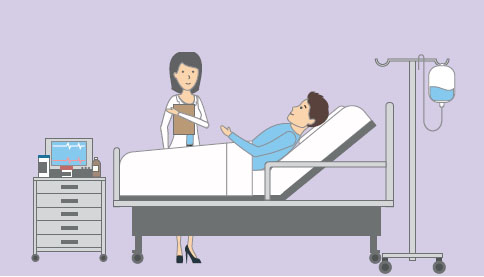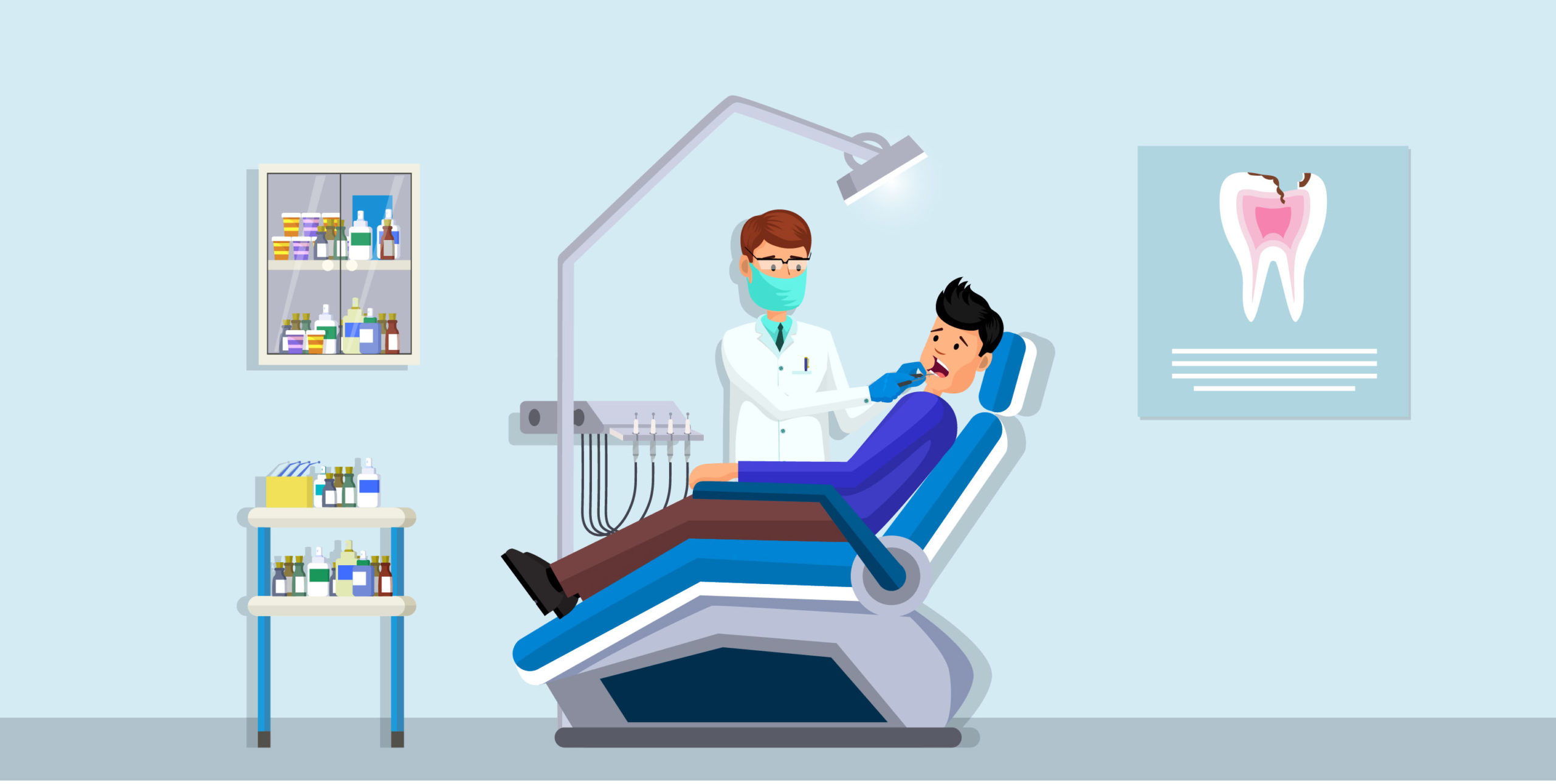Blog - OUR MARKETS - Medical and biotech sector
 The use of Solid State Relays in the Medical and Biotech Sectors : an essential tool for precision and reliability
The use of Solid State Relays in the Medical and Biotech Sectors : an essential tool for precision and reliability
Solid state relays (SSRs) and Magnetic Sensors are components widely used to control electrical circuits in many industries.
In the medical and biotechnology sectors, the role of SSRs is crucial in ensuring the reliability, precision, and safety of equipment. These relays are especially valued for their ability to switch electrical loads without moving parts, offering greater longevity, enhanced reliability, and reduced mechanical noise. This article explores the importance of SSRs in critical applications such as medical equipment management, diagnostic systems, and laboratory environments.
Magnetic proximity sensors play also a significant role in the medical and biotechnology sectors due to their ability to detect the presence or absence of objects without any contact. These sensors offer high precision, reliability, and resistance to harsh environments, making them particularly suitable for critical applications. In this blog article we will also give you some examples of applications of magnetic proximity sensors in these sectors.
 1-Temperature Control
1-Temperature Control Temperature regulation plays a crucial role in the medical and biotechnology sectors, where maintaining stable thermal conditions is essential for patient care, sample integrity, and equipment reliability. Solid state relays (SSRs), known for their precision and durability, are widely used in various temperature control systems across this field.
To begin with, dialysis generators rely heavily on precise temperature management. These machines must maintain dialysis fluids at an exact temperature to prevent thermal shock to patients and ensure both the safety and effectiveness of the treatment. Any deviation could lead to complications such as hypothermia or hyperthermia.
Similarly, infant incubators designed for premature or medically fragile newborns require tightly regulated heating systems. These incubators simulate the warmth of the womb, which is vital for the infants’ development and overall survival. SSRs enable consistent thermal output, minimizing temperature fluctuations that could put neonates at risk.
Moving to the laboratory setting, sterilizers like autoclaves utilize high temperatures to eliminate microorganisms on medical instruments. In this context, accurate thermal control ensures the sterilization process is thorough while avoiding damage to delicate equipment. In the same vein, glassware washers used for cleaning medical and laboratory tools depend on carefully controlled water temperatures to remove residues effectively, all while preserving the integrity of glass instruments.
Furthermore, blood analyzers—devices that measure various blood parameters—employ temperature sensors to maintain stable internal conditions. Since some tests require specific temperature ranges to yield accurate results, precise thermal regulation is critical to avoiding diagnostic errors.
In addition, centrifuges—particularly those used to separate components of blood or other biological fluids—must operate within strict temperature limits. Any deviation could compromise the sample’s quality or trigger unwanted chemical reactions, making temperature stability a top priority.
In dental applications, laboratory furnaces are used for firing and hardening materials such as crowns and implants. Here, uniform temperature distribution ensures the structural integrity and quality of the dental products, which directly impacts patient outcomes.
Beyond equipment, temperature control also plays a vital role in patient care environments. For instance, temperature regulation in hospital rooms—especially in intensive care units—is essential to support patients with impaired thermal regulation. SSRs help maintain stable room temperatures that contribute to patient recovery and comfort.
Lastly, thermotherapy devices such as heated blankets or compresses require accurate temperature settings to treat injuries or muscle pain effectively. Without proper control, these treatments could inadvertently cause burns or other adverse effects.
In summary, precise temperature control supported by solid-state relays is fundamental to the safety, efficacy, and quality of numerous medical and biotech processes. From patient care to laboratory analysis and equipment sterilization, maintaining consistent thermal conditions not only enhances outcomes but also minimizes risks associated with thermal variation.

In biotechnology laboratories, solid state relays are used to maintain controlled environments, such as in incubators or cryopreservation systems. These devices ensure precise temperature and environmental conditions, which are crucial for cell cultures or the storage of sensitive biological materials.
 3- Motor control
3- Motor controlMotor control systems are widely used in the medical field to enhance patient care, comfort, and mobility, while also supporting rehabilitation efforts. These applications rely on precise and reliable control mechanisms, and increasingly, solid state relays (SSRs) are replacing traditional electromechanical relays (EMRs) to offer improved performance, greater durability, and integrated voltage protection.

One of the most common examples is found in medical beds, which utilize electric motors to adjust various components of the bed to suit the patient’s needs. These adjustments can include raising or lowering the bed to help patients get in and out more easily, as well as repositioning the head or foot sections to improve comfort, aid in breathing, or help prevent pressure sores. Moreover, advanced motorized beds are designed to promote mobility and minimize complications that arise from prolonged immobility, making motor control a key contributor to patient health and safety.
Equally important is the role of motor control in rehabilitation equipment, particularly for patients recovering from injuries or neurological conditions. In this context, devices such as rehabilitation robots assist patients in performing repetitive movements to strengthen muscles and restore coordination. Similarly, motorized exoskeletons—wearable systems powered by motors—are used to help individuals with impaired mobility relearn how to walk or perform other functional movements. Additionally, motorized treadmills are commonly used in physical therapy settings, offering adjustable speed and incline to tailor the therapy to each patient’s specific needs and capabilities.

Another notable application can be found in dental chairs, where up to six motors may be used to precisely adjust the position of the seat and armrests. This not only improves the ergonomics for the dental professional but also ensures maximum comfort and proper positioning for the patient during procedures.
In all of these systems, replacing conventional electromechanical relays with solid state relays provides several advantages. SSRs offer silent operation, faster response times, and extended lifespan due to the absence of moving parts. Furthermore, their ability to incorporate built-in voltage protection enhances overall system reliability and safeguards sensitive medical devices from potential electrical issues.
In summary, motor control applications are integral to modern medical care, spanning everything from patient support and comfort to advanced rehabilitation technologies. The integration of solid-state relays into these systems ensures greater efficiency, reliability, and protection—ultimately contributing to improved outcomes for both patients and healthcare providers.
 Advantages of Solid-State Relays in the medical and biotech sector
Advantages of Solid-State Relays in the medical and biotech sector celduc’s range of Solid State Relays

Medical Safety Systems In medical environments, patient and equipment safety are paramount. Magnetic sensors are used to ensure that certain parts of medical devices, such as doors or covers, are properly closed or locked, preventing accidents related to improper handling. For instance, a magnetic sensor might be integrated into imaging machines to ensure doors are securely closed before the machine is activated.
As an example celduc’s safety sensirs are used in blood analyser to protect the operators against contamination.
In the medical field, the optimal management of storage equipment, such as medical refrigerators, is crucial to ensure the safety and proper preservation of temperature-sensitive medications, vaccines, and other products. A key aspect of this management is the monitoring of the proper functioning of refrigerators, particularly the control of door openings and closings, to prevent any temperature fluctuations that could compromise the integrity of stored products.
Magnetic sensors play a vital role in this process by providing a reliable and efficient solution for detecting the opening and closing of refrigerator doors. With their ability to provide real-time data on the door status, these sensors enable continuous monitoring and proactive management, helping to maintain optimal storage conditions and ensuring the safety of sensitive products.
This application of magnetic sensors is an essential component in the quality control chain, enhancing safety, compliance, and traceability in medical environments.
Temperature-sensitive medications and vaccines, such as flu vaccines or other biological treatments, require temperature control systems in medical refrigerators and freezers. Rigorous temperature control is crucial to avoid the loss of efficacy of the medications.
Cold rooms and refrigerators are used in hospitals to store biological samples, transplant organs, or medications. These units must maintain a constant and precise temperature to ensure the safety and quality of the stored products.
Certain medical devices, such as medical lasers, radiotherapy machines, or imaging equipment, generate heat during operation. Temperature control is necessary to prevent overheating and ensure stable, safe functioning.
Blood banks use temperature-controlled freezers to store blood components like plasma and platelets. Rigorous temperature control is necessary to ensure the safety and integrity of blood products during long-term storage.
Liquid level detection in the medical and biotechnology sectors is a crucial technology, as it helps ensure the accuracy of treatments, guarantees patient safety, and improves manufacturing and control processes.
In the balneotherapy sector, liquid level detection also plays a key role in ensuring the quality of treatments and guaranteeing the safety of users. Water levels in these systems need to be monitored to prevent dry running, which could damage pumps or disrupt jet functionality.
Liquid level monitoring is critical to prevent fluid overload or excessive fluid loss, which could lead to complications in dialysis patients.
Liquid level detection in bioreactors, incubators, and other laboratory equipment helps automate and ensure stable conditions for the production of proteins, vaccines, or other biopharmaceutical products.
In hospitals, reservoirs containing saline solutions, sterile water, or other medical fluids need to be monitored to avoid stockouts and ensure the availability of necessary fluids.
Magnetic proximity sensors are used in patient monitoring systems, such as devices that track movements or vital signs. For example, in hospital beds, these sensors can detect whether a patient is present or if unusual movement occurs, triggering alerts for medical staff when needed. This helps prevent falls and ensures continuous monitoring of the patient’s health status.
Magnetic sensors are commonly used in medical devices like infusion pumps, ventilators, and other critical equipment. For example, in an infusion pump, a magnetic sensor can monitor the position of a piston or valve, allowing precise control and management of the fluids being administered to patients.
Magnetic sensors are used in laboratory automation systems, such as robotic pipetting systems or cell culture machines. They help detect the position of moving components, such as robotic arms or culture vials, ensuring precise control over actions and movements in research or production environments.
 Advantages of magnetic sensors in the medical and biotech sectors
Advantages of magnetic sensors in the medical and biotech sectors1-Contactless and high precision. These sensors detect objects without physical contact, reducing wear and the risk of mechanical failure. Their high precision provides reliable measurements, which is essential in critical environments like hospitals and laboratories.
2-Reliability and longevity. Magnetic sensors are robust and resistant to extreme conditions, such as high or low temperatures, and harsh or corrosive environments. This makes them particularly suitable for applications in the medical and biotech sectors, where reliability is paramount.
3-Miniaturization and easy Integration. Due to their small size, magnetic sensors can be integrated into a variety of medical or biotech devices without compromising the compactness of the equipment, which is essential in space-constrained environments.
4-Resistance to Interference. Magnetic sensors are not sensitive to electrical interference, which is crucial in environments where complex electrical devices are in use, such as hospitals and research laboratories.
celduc ‘s range of Magnetic Proximity sensors
The integration of solid-state relays in medical and biotech equipment represents a major technological advancement. By providing more reliable, precise, and durable solutions, these devices play a crucial role in modern healthcare and biotechnology. Their ability to ensure continuous, flawless performance makes them an indispensable choice for critical applications where safety and reliability are essential.
Magnetic proximity sensors play also a vital role in the medical and biotech sectors due to their unique characteristics: precision, reliability, and resistance to harsh environments. From patient monitoring to laboratory process automation, and equipment control, these sensors ensure the safety, quality, and efficiency of medical and biotech devices. Their ability to operate without physical contact and their high performance in extreme conditions make them indispensable in sectors where precision and reliability are essential.